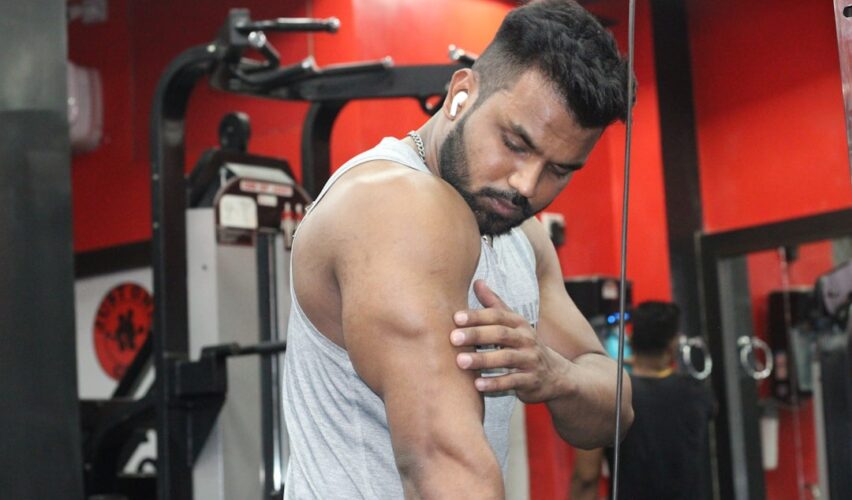Timing your meals can significantly impact your muscle growth journey. You may have heard the phrase “anabolic window,” which refers to the period after your workout when your muscles are primed to absorb nutrients. Consuming the right foods during this window can enhance recovery and promote muscle synthesis.
Ideally, you should aim to eat a balanced meal containing protein and carbohydrates within 30 to 60 minutes post-exercise. This is when your body is most receptive to nutrients, and the right intake can help replenish glycogen stores and repair muscle fibers. However, it’s not just about what you eat after your workout; pre-workout nutrition is equally crucial.
Eating a meal rich in carbohydrates and protein a few hours before hitting the gym can provide you with the energy needed for an intense workout. This preparation allows you to push harder, lift heavier, and ultimately stimulate more muscle growth. By understanding the importance of timing, you can optimize your nutrition strategy to align with your training schedule, ensuring that you are fueling your body effectively for both performance and recovery.
Key Takeaways
- Timing is crucial for muscle growth, with pre and post-workout meals playing a key role in providing the necessary nutrients for muscle repair and growth.
- Understanding the importance of macros, including protein, carbohydrates, and fats, is essential for supporting muscle growth and recovery.
- Pre-workout fuel should consist of easily digestible carbohydrates and a moderate amount of protein to provide energy and support muscle function during exercise.
- Post-workout recovery meals should focus on protein and carbohydrates to replenish glycogen stores and support muscle repair and growth.
- Real meals for muscle growth should include nutrient-dense foods such as lean proteins, whole grains, fruits, and vegetables to provide essential vitamins, minerals, and antioxidants for optimal muscle development.
Understanding Macros: Protein, Carbohydrates, and Fats for Muscle Growth
To maximize muscle growth, you need to understand the role of macronutrients: protein, carbohydrates, and fats. Each plays a unique role in your body’s ability to build and repair muscle tissue. Protein is often hailed as the king of macronutrients for muscle growth.
It provides the essential amino acids necessary for muscle repair and synthesis. As a general guideline, aim for about 1.6 to 2.2 grams of protein per kilogram of body weight daily, depending on your activity level and goals. Carbohydrates are equally important, as they serve as the primary energy source for your workouts.
Consuming adequate carbs ensures that you have enough glycogen stored in your muscles, allowing you to perform at your best during training sessions. Fats, while often misunderstood, are also vital for hormone production and overall health.
Striking the right balance among these macronutrients will help you create a diet that supports your muscle-building goals effectively.
Pre-Workout Fuel: Foods to Eat Before a Workout for Muscle Growth

What you eat before a workout can set the tone for your entire training session. To optimize performance and muscle growth, focus on consuming a meal that combines both carbohydrates and protein. A good pre-workout meal might include oatmeal topped with fruit and a scoop of protein powder or a whole-grain sandwich filled with lean turkey and avocado.
These options provide the necessary energy while also supplying amino acids to support muscle function. Timing is also essential when it comes to pre-workout nutrition. Ideally, you should eat your pre-workout meal about 1-3 hours before exercising.
This allows enough time for digestion while ensuring that you have readily available energy during your workout. If you’re short on time, consider a quick snack like a banana with nut butter or a protein shake about 30 minutes before hitting the gym. These quick options can help you maintain energy levels without feeling weighed down during your workout.
Post-Workout Recovery: Foods to Eat After a Workout for Muscle Growth
After an intense workout, your body enters a recovery phase where it needs nutrients to repair and rebuild muscle tissue. Consuming a post-workout meal rich in protein and carbohydrates is essential for maximizing recovery and promoting muscle growth. A classic post-workout option is a protein shake made with whey protein, mixed with water or milk, along with a banana or some rice cakes for carbohydrates.
This combination helps replenish glycogen stores while providing the necessary building blocks for muscle repair. In addition to shakes, consider whole food options like grilled chicken with quinoa and steamed vegetables or Greek yogurt with berries and honey. These meals not only provide the right macronutrients but also offer vitamins and minerals that support overall health.
Remember that the post-workout window is crucial; aim to eat within 30-60 minutes after exercising to take full advantage of this recovery phase.
Real Meals for Muscle Growth: Nutrient-Dense Foods to Include in Your Diet
Incorporating nutrient-dense foods into your diet is vital for supporting muscle growth. Focus on whole foods that provide a variety of vitamins, minerals, and macronutrients essential for optimal performance and recovery. Lean meats like chicken, turkey, and fish are excellent sources of protein that can help you meet your daily requirements while also providing essential nutrients like omega-3 fatty acids found in fatty fish.
Don’t overlook plant-based options either; legumes, lentils, quinoa, and tofu are fantastic sources of protein and fiber that can contribute to muscle growth while also supporting digestive health. Additionally, incorporating plenty of fruits and vegetables into your meals ensures that you’re getting antioxidants that can help reduce inflammation and promote recovery after workouts. By prioritizing these nutrient-dense foods, you’ll create a solid foundation for muscle growth.
Snacks for Muscle Growth: Healthy Options to Keep You Fueled Throughout the Day

Snacking can play an important role in supporting your muscle growth goals by providing additional calories and nutrients throughout the day. Opt for healthy snacks that combine protein, carbohydrates, and healthy fats to keep you energized between meals. For example, Greek yogurt with nuts or seeds offers a great balance of protein and healthy fats while also being deliciously satisfying.
Another excellent option is cottage cheese paired with fruit or whole-grain crackers topped with hummus. These snacks not only provide essential nutrients but also help maintain stable energy levels throughout the day. Preparing snacks in advance can make it easier to stick to your nutrition plan; consider portioning out nuts or making protein bars at home so that you always have healthy options on hand when hunger strikes.
Hydration for Muscle Growth: The Role of Water in Supporting Muscle Development
Hydration is often overlooked but plays a critical role in muscle growth and overall performance. Water is essential for various bodily functions, including nutrient transport, temperature regulation, and joint lubrication. When you’re dehydrated, your performance can suffer, leading to decreased strength and endurance during workouts.
This can hinder your ability to push yourself and stimulate muscle growth effectively. To ensure optimal hydration, aim to drink water consistently throughout the day rather than waiting until you’re thirsty. A good rule of thumb is to consume at least half your body weight in ounces of water daily; more if you’re engaging in intense workouts or sweating heavily.
Additionally, consider incorporating electrolyte-rich beverages after intense training sessions to replenish lost minerals and support recovery.
Supplements for Muscle Growth: What to Consider Adding to Your Diet
While whole foods should be the cornerstone of your nutrition plan, certain supplements can complement your diet and support muscle growth effectively. Protein powders are among the most popular supplements; they provide a convenient way to increase your protein intake without having to prepare additional meals. Whey protein is particularly effective due to its high bioavailability and rapid absorption rate.
Creatine is another well-researched supplement that can enhance strength and power output during workouts, leading to greater muscle gains over time. Branched-chain amino acids (BCAAs) may also be beneficial for reducing muscle soreness and promoting recovery when taken before or after workouts. However, it’s essential to consult with a healthcare professional before adding any supplements to ensure they align with your individual needs and goals.
Meal Planning for Muscle Growth: How to Structure Your Meals for Optimal Results
Effective meal planning is key to achieving your muscle growth goals. Start by determining your daily caloric needs based on your activity level and goals—whether you’re looking to gain muscle mass or maintain your current weight while building strength. Once you have this baseline, structure your meals around balanced macronutrient ratios that support muscle growth.
Aim for three main meals per day along with healthy snacks in between.
For example, breakfast could consist of eggs with whole-grain toast and avocado; lunch might be grilled chicken with brown rice and vegetables; dinner could feature salmon with sweet potatoes and asparagus.
By planning ahead and preparing meals in advance, you’ll be better equipped to stay on track with your nutrition goals.
The Role of Rest and Recovery: How Sleep and Stress Management Contribute to Muscle Growth
Rest and recovery are just as important as nutrition when it comes to building muscle effectively. Sleep plays a crucial role in recovery; during deep sleep stages, your body releases growth hormone, which aids in tissue repair and muscle growth. Aim for 7-9 hours of quality sleep each night to ensure that you’re giving your body ample time to recover from workouts.
Additionally, managing stress levels is vital for optimal muscle growth. Chronic stress can lead to elevated cortisol levels, which may hinder muscle recovery and promote fat storage instead of lean mass gain. Incorporating relaxation techniques such as meditation, yoga, or deep breathing exercises into your routine can help mitigate stress effects on your body while supporting overall well-being.
Balancing Nutrition and Training: Finding the Right Approach for Your Muscle Growth Goals
Finding the right balance between nutrition and training is essential for achieving your muscle growth goals effectively. It’s important to remember that both elements work synergistically; without proper nutrition, even the most rigorous training regimen may not yield desired results. Take time to assess how your diet aligns with your training schedule—are you fueling adequately before workouts?
Are you recovering properly afterward? Consider keeping a food diary or using apps that track both nutrition intake and workout performance; this can help identify patterns or areas needing improvement in either aspect of your routine. Ultimately, achieving optimal muscle growth requires commitment not only in the gym but also in the kitchen—by prioritizing both nutrition and training equally, you’ll set yourself up for success on your journey toward building strength and size.
FAQs
What is muscle growth?
Muscle growth, also known as muscle hypertrophy, refers to the increase in the size of muscle cells as a result of strength training and proper nutrition.
Why is nutrition important for muscle growth?
Nutrition plays a crucial role in muscle growth as it provides the necessary nutrients for muscle repair, recovery, and growth. Without proper nutrition, the body may not have the resources it needs to build and repair muscle tissue.
What are macros and how do they relate to muscle growth?
Macros, short for macronutrients, refer to the three main components of food: protein, carbohydrates, and fats. Each macronutrient plays a specific role in muscle growth, with protein being essential for muscle repair and growth, carbohydrates providing energy for workouts, and fats supporting hormone production and overall health.
How does timing of meals impact muscle growth?
Timing of meals can impact muscle growth by ensuring that the body has a steady supply of nutrients throughout the day. Consuming a balanced meal or snack containing protein and carbohydrates before and after workouts can help support muscle repair and growth.
What are some real meal options for muscle growth?
Real meal options for muscle growth include lean proteins such as chicken, turkey, and fish, complex carbohydrates like brown rice and sweet potatoes, healthy fats from sources like avocados and nuts, and plenty of fruits and vegetables for essential vitamins and minerals.














